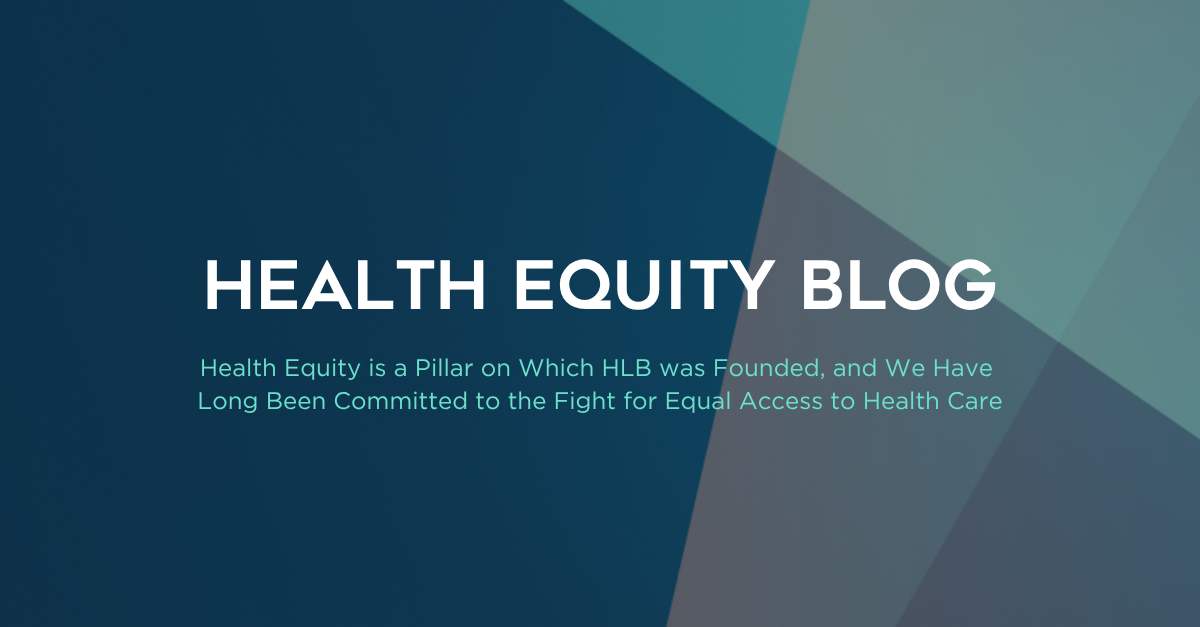
On behalf of the Hooper, Lundy & Bookman, PC Health Equity Task Force, here is our most recent HLB Health Equity Essentials Update.
TWO YEARS IN, CMS’S HEALTH EQUITY INITIATIVE CONTINUES MAKING SIGNIFICANT STRIDES
In 2022, the Center for Medicare and Medicaid Innovation (CMMI), as part of its Advance Health Equity objective, rolled out a new health equity initiative. Its stated goals are to increase safety-net provider participation, develop new models and revise existing models to promote and incentivize equitable care, monitor and evaluate models for health equity impact, and increase collection and analysis of equity data. Notable achievements have been made with respect to each goal. New work this year includes payment innovations to narrow disparities in care, a focus on safety-net provider participation in models to improve care for more beneficiaries, and data collection that advances a comprehensive approach to care.
KFF SURVEY REVEALS NOTABLE DISPARITIES IN MENTAL HEALTH CARE ALONG RACIAL/ETHNIC DIVIDES
Kaiser Family Foundation’s (KFF’s) most recent Survey on Racism, Discrimination, and Health, shows that, although mental illness reported by Hispanic, Black, and Asian adults is comparatively less than among White adults, the figures may be misleading due to such factors as lack of culturally sensitive screening tools used in diagnosing mental illness. The survey’s data includes responses indicating that people of color encounter difficulties locating health care providers with shared backgrounds and experiences, lack access to mental health information, and experience stigma and embarrassment obstacles to seeking mental health care in the first place. According to KFF, this data suggests that enhancing knowledge of culturally competent care among mental health care providers and diversifying the mental health care workforce are desperately needed. In addition, targeted outreach and education efforts among specific communities could increase awareness of mental health resources and help eradicate the stigma associated with seeking mental health care.
AGAINST THE GROWING TIDE OF CLOSURES, ONE L.A. HOSPITAL FIGHTS TO KEEP ITS MATERNITY WARD OPEN
During the past ten years, many California hospitals – 17 in L.A. County alone – have been shuttering their labor and delivery programs because of devastating financial losses compared to other service lines. In L.A., however, nonprofit Martin Luther King Jr. Community Hospital is defying the odds by continuing to offer these desperately needed services to the largely non-White community it serves in furtherance of its charitable mission. Although some of these closures are attributed to large national for-profit hospital systems concerned about their bottom line being negatively impacted, low Medi-Cal reimbursement rates have definitely been a culprit as well. The consensus among California hospital administrators appears to be that the labor and delivery crisis will continue, jeopardizing access to maternal care in many already underserved communities, until Medi-Cal reimbursement for these services at least enables hospitals to break even.
U.S. NEWS & WORLD REPORT RELEASES INAUGURAL LIST OF BEST REGIONAL HOSPITALS FOR EQUITABLE ACCESS
For the first time, U.S. News & World Report has identified 53 hospitals that have produced enviable health care outcomes, while at the same time serving significant numbers of disadvantaged people of color, in an overt commitment to ensuring equitable access to care. Each of these hospitals was previously recognized by U.S. News in its Best Regional Hospitals rankings for its laudable health care outcomes without taking into consideration the impact such additional Social Determinants of Health (SDOH) factors might have had on patient outcomes. To make this new list, each hospital had to meet at least two of three additional criteria: at least 40% of Medicare inpatient visits involved patients living in socioeconomically deprived communities, the hospital serves a sizable Medicaid population, and its patient population reflects the racial and ethnic diversity of the surrounding community.
DHSS’S OFFICE OF MINORITY HEALTH CONTINUES ADVOCACY EFFORTS THAT HEALTHCARE ALGORITHMS AND AI INCORPORATE EQUITY GOALS
The Department of Health and Human Services (HHS) Office of Minority Health has been tracking efforts within the industry to reduce biases in healthcare algorithms and AI. Most recently, it described how the Agency for Healthcare Research and Quality and the National Institute for Minority Health and Health Disparities assembled a diverse panel of experts to review evidence, hear from stakeholders, and receive community feedback. This information will help inform development of a conceptual framework that includes five guiding principles for mitigating and preventing bias in health care algorithms, thereby promoting health care equity.
SCOTUS REBUKES CHALLENGE TO MIFEPRISTONE’S LEGALITY AS A SAFE ABORTION DRUG
On June 13, the U.S. Supreme Court released its decision in FDA v. Alliance for Hippocratic Medicine, overturning the opinions of the lower federal courts in the case that ruled mifepristone was unsafe. Since it was first approved by the FDA in 2000, mifepristone, commonly used in combination with misoprostol, is a widely accepted and commonly used oral abortion medication. As expected, the Court’s decision has either been heralded or lamented, depending upon which side of the abortion aisle one sits.
Professional
If you have any questions, please reach out to Alicia Macklin, Sandi Krul, Monica Massaro, Kerry Sakimoto, or your regular HLB contact.



